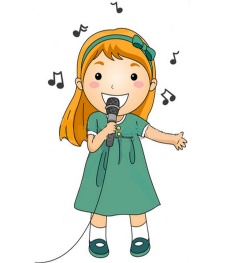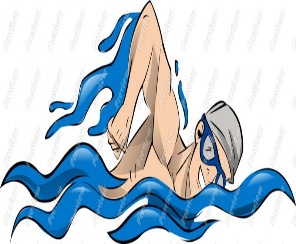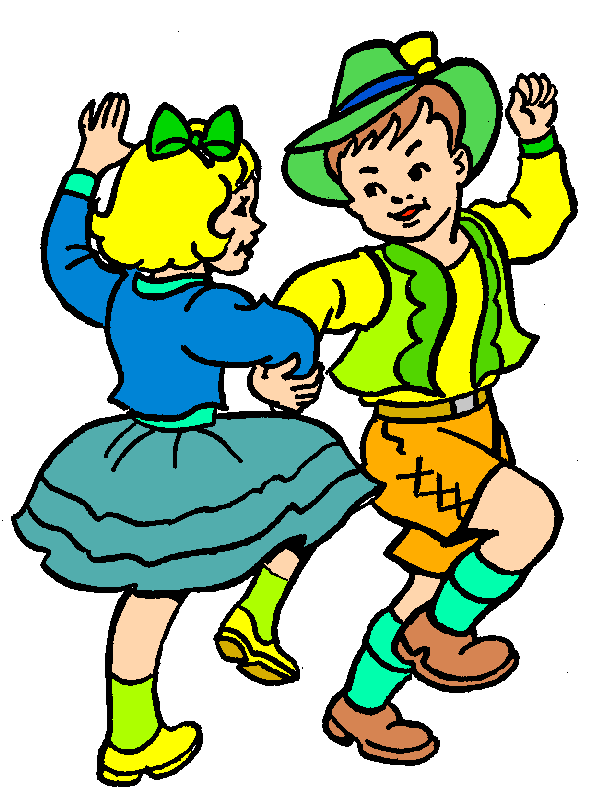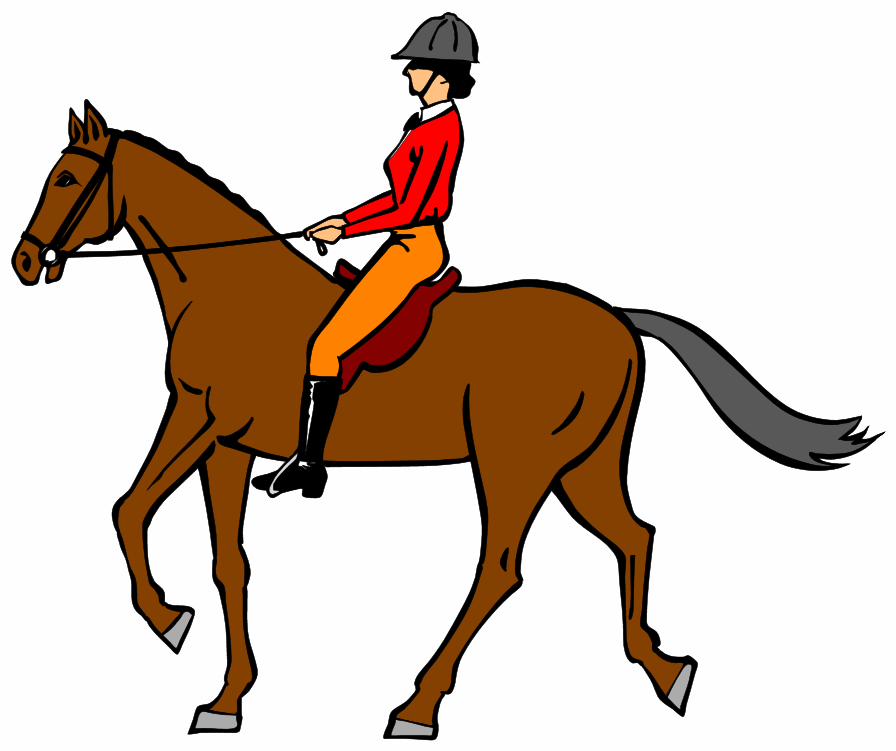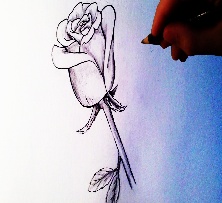
Short term plan
Lesson plan
|
LESSON: Unit 1. Hobbies and leisure |
School: Mahmud Kashgariy |
||||||||||||||||||||||||||||||||||||||||||||||||||||||||||||||||||||||||||||||||||||||||||||||||||||||||||||||||||||||||||||||||||||||||||||||||||||||||||||||||||||||||||||||||||||||||||||||||||||||||||||||||||||||||||||||||||||||||
|
Date: |
Teacher name: Abduraimova Makhsura |
||||||||||||||||||||||||||||||||||||||||||||||||||||||||||||||||||||||||||||||||||||||||||||||||||||||||||||||||||||||||||||||||||||||||||||||||||||||||||||||||||||||||||||||||||||||||||||||||||||||||||||||||||||||||||||||||||||||||
|
CLASS: 7 |
Number present: |
Absent : |
|||||||||||||||||||||||||||||||||||||||||||||||||||||||||||||||||||||||||||||||||||||||||||||||||||||||||||||||||||||||||||||||||||||||||||||||||||||||||||||||||||||||||||||||||||||||||||||||||||||||||||||||||||||||||||||||||||||||
|
Lesson title |
Discussion about hobbies and leisure |
||||||||||||||||||||||||||||||||||||||||||||||||||||||||||||||||||||||||||||||||||||||||||||||||||||||||||||||||||||||||||||||||||||||||||||||||||||||||||||||||||||||||||||||||||||||||||||||||||||||||||||||||||||||||||||||||||||||||
|
Learning objectives(s) that this lesson is contributing to (link to the Subject program) |
7. S.2 Ask complex questions to get information about a limited range of general topics and some curricular topics 7. R.1 understand the main points in texts on limited range of general and curricular topics. 7.L.1 understand with little support the main points in extended talk on a limited range of general and curricular topics |
||||||||||||||||||||||||||||||||||||||||||||||||||||||||||||||||||||||||||||||||||||||||||||||||||||||||||||||||||||||||||||||||||||||||||||||||||||||||||||||||||||||||||||||||||||||||||||||||||||||||||||||||||||||||||||||||||||||||
|
Level of thinking skills |
Higher level of thinking skills |
||||||||||||||||||||||||||||||||||||||||||||||||||||||||||||||||||||||||||||||||||||||||||||||||||||||||||||||||||||||||||||||||||||||||||||||||||||||||||||||||||||||||||||||||||||||||||||||||||||||||||||||||||||||||||||||||||||||||
|
Lesson objectives |
All learners will be able to:
|
||||||||||||||||||||||||||||||||||||||||||||||||||||||||||||||||||||||||||||||||||||||||||||||||||||||||||||||||||||||||||||||||||||||||||||||||||||||||||||||||||||||||||||||||||||||||||||||||||||||||||||||||||||||||||||||||||||||||
|
|
|||||||||||||||||||||||||||||||||||||||||||||||||||||||||||||||||||||||||||||||||||||||||||||||||||||||||||||||||||||||||||||||||||||||||||||||||||||||||||||||||||||||||||||||||||||||||||||||||||||||||||||||||||||||||||||||||||||||||
|
Most learners will be able to:
|
|||||||||||||||||||||||||||||||||||||||||||||||||||||||||||||||||||||||||||||||||||||||||||||||||||||||||||||||||||||||||||||||||||||||||||||||||||||||||||||||||||||||||||||||||||||||||||||||||||||||||||||||||||||||||||||||||||||||||
|
|
|||||||||||||||||||||||||||||||||||||||||||||||||||||||||||||||||||||||||||||||||||||||||||||||||||||||||||||||||||||||||||||||||||||||||||||||||||||||||||||||||||||||||||||||||||||||||||||||||||||||||||||||||||||||||||||||||||||||||
|
Some learners will be able to:
|
|||||||||||||||||||||||||||||||||||||||||||||||||||||||||||||||||||||||||||||||||||||||||||||||||||||||||||||||||||||||||||||||||||||||||||||||||||||||||||||||||||||||||||||||||||||||||||||||||||||||||||||||||||||||||||||||||||||||||
|
Assessment criteria |
|
||||||||||||||||||||||||||||||||||||||||||||||||||||||||||||||||||||||||||||||||||||||||||||||||||||||||||||||||||||||||||||||||||||||||||||||||||||||||||||||||||||||||||||||||||||||||||||||||||||||||||||||||||||||||||||||||||||||||
|
|||||||||||||||||||||||||||||||||||||||||||||||||||||||||||||||||||||||||||||||||||||||||||||||||||||||||||||||||||||||||||||||||||||||||||||||||||||||||||||||||||||||||||||||||||||||||||||||||||||||||||||||||||||||||||||||||||||||||
|
Values links |
Health is above wealth |
||||||||||||||||||||||||||||||||||||||||||||||||||||||||||||||||||||||||||||||||||||||||||||||||||||||||||||||||||||||||||||||||||||||||||||||||||||||||||||||||||||||||||||||||||||||||||||||||||||||||||||||||||||||||||||||||||||||||
|
Crosss-curricular links |
Physical Training, self-learning |
||||||||||||||||||||||||||||||||||||||||||||||||||||||||||||||||||||||||||||||||||||||||||||||||||||||||||||||||||||||||||||||||||||||||||||||||||||||||||||||||||||||||||||||||||||||||||||||||||||||||||||||||||||||||||||||||||||||||
|
|
|
||||||||||||||||||||||||||||||||||||||||||||||||||||||||||||||||||||||||||||||||||||||||||||||||||||||||||||||||||||||||||||||||||||||||||||||||||||||||||||||||||||||||||||||||||||||||||||||||||||||||||||||||||||||||||||||||||||||||
|
Previous learning |
|
||||||||||||||||||||||||||||||||||||||||||||||||||||||||||||||||||||||||||||||||||||||||||||||||||||||||||||||||||||||||||||||||||||||||||||||||||||||||||||||||||||||||||||||||||||||||||||||||||||||||||||||||||||||||||||||||||||||||
|
Plan |
|||||||||||||||||||||||||||||||||||||||||||||||||||||||||||||||||||||||||||||||||||||||||||||||||||||||||||||||||||||||||||||||||||||||||||||||||||||||||||||||||||||||||||||||||||||||||||||||||||||||||||||||||||||||||||||||||||||||||
|
Planned timings |
Planned activities (replace the notes below with your Planned activities) |
Resources |
|||||||||||||||||||||||||||||||||||||||||||||||||||||||||||||||||||||||||||||||||||||||||||||||||||||||||||||||||||||||||||||||||||||||||||||||||||||||||||||||||||||||||||||||||||||||||||||||||||||||||||||||||||||||||||||||||||||||
|
Start 5 min |
1. Greeting and asking organization moment’s questions 2. To inform Students with Lesson Objectives 3.Brainstorming “Images” – Activity Teacher shows some pictures of hobbies and leisure time activities and asks students to say what activity is it, thus students find the theme of the lesson
Differentiation questions for more able student: 1. How much free time do you have in a day? 2. Will your hobby help you in your future? AFL – oral feedback according to the Student’s ability |
Pictures of Hobbies and Leisure time Activities |
|||||||||||||||||||||||||||||||||||||||||||||||||||||||||||||||||||||||||||||||||||||||||||||||||||||||||||||||||||||||||||||||||||||||||||||||||||||||||||||||||||||||||||||||||||||||||||||||||||||||||||||||||||||||||||||||||||||||
|
Middle 5min 5 min 10min 10min 5min |
|
|
|||||||||||||||||||||||||||||||||||||||||||||||||||||||||||||||||||||||||||||||||||||||||||||||||||||||||||||||||||||||||||||||||||||||||||||||||||||||||||||||||||||||||||||||||||||||||||||||||||||||||||||||||||||||||||||||||||||||
|
|
|
||||||||||||||||||||||||||||||||||||||||||||||||||||||||||||||||||||||||||||||||||||||||||||||||||||||||||||||||||||||||||||||||||||||||||||||||||||||||||||||||||||||||||||||||||||||||||||||||||||||||||||||||||||||||||||||||||||||||
|
(I) Drilling activity Listen and read the words. Swimming riding drawing driving dancing singing Differentiation task for less able student: Check the meaning of these words in a dictionary. Swimming riding drawing driving dancing singing Differentiation: More able students add other hobbies and leisure activities to the list and make up 2 sentences with them. AFL oral comments (I)Task 1 . Listen to the teacher and match the words with their definitions
music AFL Laminated papers (I)Task 2. Describing activity. Choose one of the cards and describe the activity.
Differentiation for less able students: to find the key words of this action
Descriptor: A learner - chooses the card -describes the activity
(G)Task 3. “Scanning” activity. Read the text and find the key words . Talk about your own hobby using key words. HOBBIES Different people like doing different things. So they have different hobbies. There are many hobbies for example, travelling, gardening, reading, sports and music. Some people prefer reading books, newspapers or magazines. Somebody likes listening to music, others prefer singing, dancing. Many people especially boys are fond of sports; they go in for football, tennis, hockey. Girls prefer cooking, music, and gardening. Collecting is one of the most popular hobbies. We can collect stamps, badges, coins. Collections may be thematic. Differentiation: teacher helps the students to understand the meaning of some words by giving the translation My hobby is… I like to …… It is really interesting to ... Descriptor: - A learner -reads the text - identifies the key words - talks about own hobby using the key words (P)Task 4. Face to face Stand in two lines face to face. Have one minute to talk to the person directly facing them about their hobbies. The first line asks the second line answer. Then the first line move one place to the left so that they are now facing a different person. They repeat the conversation again. After they swap their roles. Probing questions What is your hobby? When do you do it? Why do you like this activity?
AFL – peer assessment Descriptor: A learner
|
Excel 7. Exercise 1. WB Page 4 Excel 7. Exercise 4. WB Page 5 Excel 7. Exercise 8. WB Page 7 |
||||||||||||||||||||||||||||||||||||||||||||||||||||||||||||||||||||||||||||||||||||||||||||||||||||||||||||||||||||||||||||||||||||||||||||||||||||||||||||||||||||||||||||||||||||||||||||||||||||||||||||||||||||||||||||||||||||||||
|
End 4-5 min. |
Feedback .Thumbs Teacher asks Students to show their “Thumbs” - Thumbs up – if you understand the idea of the text correctly; - Thumb down – if you do not understand the text properly Afterwards Teacher encourages more able learners to help those students who need some help Giving home task. |
|
|||||||||||||||||||||||||||||||||||||||||||||||||||||||||||||||||||||||||||||||||||||||||||||||||||||||||||||||||||||||||||||||||||||||||||||||||||||||||||||||||||||||||||||||||||||||||||||||||||||||||||||||||||||||||||||||||||||||
|
Additional information |
|||||||||||||||||||||||||||||||||||||||||||||||||||||||||||||||||||||||||||||||||||||||||||||||||||||||||||||||||||||||||||||||||||||||||||||||||||||||||||||||||||||||||||||||||||||||||||||||||||||||||||||||||||||||||||||||||||||||||
|
Differentiation – how do you plan to give more support? How do you plan to challenge the more able learners? |
Assessment – how are you planning to check learners’ learning? |
Health and safety check |
|||||||||||||||||||||||||||||||||||||||||||||||||||||||||||||||||||||||||||||||||||||||||||||||||||||||||||||||||||||||||||||||||||||||||||||||||||||||||||||||||||||||||||||||||||||||||||||||||||||||||||||||||||||||||||||||||||||||
|
“Images” activity - Differentiation questions for more able student: 1. How much free time do you have in a day? 2. Will your hobby help you in your future? “Drilling” activity - Differentiation task for less able student: Check the meaning of these words in a dictionary. Swimming riding drawing driving dancing singing Differentiation: More able students add other hobbies and leisure activities to the list and make up 2 sentences with them. Task 2. Differentiation for less able students: to find the key words of this action Task 3. -Differentiation: teacher helps the students to understand the meaning of some words by giving the translation |
AFL – oral feedback according to the Student’s action
AFL oral comments AFL Laminated papers
AFL – peer assessment
|
Be careful while acting the dialogue out |
|||||||||||||||||||||||||||||||||||||||||||||||||||||||||||||||||||||||||||||||||||||||||||||||||||||||||||||||||||||||||||||||||||||||||||||||||||||||||||||||||||||||||||||||||||||||||||||||||||||||||||||||||||||||||||||||||||||||
|
Reflection Were the lesson objectives/learning objectives realistic? Did all the learners achieve the lesson objectives/learning objectives? If not, why? Did my planned differentiation work well? Did I stick to timings? What changes did I make from my plan and why? |
Use the space below to reflect on your lesson. Answer the most relevant questions from the box on the left about your lesson. |
||||||||||||||||||||||||||||||||||||||||||||||||||||||||||||||||||||||||||||||||||||||||||||||||||||||||||||||||||||||||||||||||||||||||||||||||||||||||||||||||||||||||||||||||||||||||||||||||||||||||||||||||||||||||||||||||||||||||
|
Бұл материал сайт қолданушысы жариялаған. Материалдың ішінде жазылған барлық ақпаратқа жауапкершілікті жариялаған қолданушы жауап береді. Ұстаз тілегі тек ақпаратты таратуға қолдау көрсетеді. Егер материал сіздің авторлық құқығыңызды бұзған болса немесе басқа да себептермен сайттан өшіру керек деп ойласаңыз осында жазыңыз
Short term
plan
Lesson plan
LESSON: Unit 1.
Hobbies and leisure School: Mahmud
Kashgariy Date: Teacher name:
Abduraimova Makhsura CLASS: 7 Number present: Absent : Lesson
title Discussion about hobbies
and leisure Learning
objectives(s) that this lesson is
contributing to (link to the Subject
program) 7. S.2 Ask complex questions
to get information about a limited range of general topics and some
curricular topics 7. R.1 understand the main
points in texts on limited range of general and curricular
topics. 7.L.1 understand
with little support the main points in extended talk on a limited
range of general and curricular topics Level of thinking
skills Higher level of
thinking skills Lesson objectives All learners will be able
to: Name the kinds of hobbies and
leisure Read and find out the key
words connected with hobbies and leisure Listen and match the words
with their definitions Most learners will be able
to: Talk about their own hobbies
using the key words Some learners will be able
to: Describe the activities
connected with hobbies and leisure Assessment
criteria identify the main idea in the
texts on general and curricular topics identify the main idea in
extended talks with little support show an ability to ask
different types of questions including
complex Values
links Health is above
wealth Crosss-curricular
links Physical Training,
self-learning Previous learning Plan Planned timings Planned activities (replace
the notes below with your Planned
activities) Resources Start 5
min 1. Greeting and asking
organization moment’s questions 2. To inform Students with
Lesson Objectives 3.Brainstorming “Images” –
Activity Teacher shows some pictures of
hobbies and leisure time activities and asks students to say what
activity is it, thus students find the theme of the
lesson Differentiation questions for
more able student: 1. How much free time do you
have in a day? 2. Will your hobby help you in
your future? AFL – oral feedback according to
the Student’s ability Pictures of Hobbies
and Leisure time Activities Middle 5min 5 min 10min 10min 5min (I) Drilling
activity Listen and read the
words. Swimming riding drawing
driving dancing singing Differentiation task for less
able student: Check the meaning of these
words in a dictionary. Swimming riding drawing
driving dancing singing Differentiation: More able students add other
hobbies and leisure activities to the list and make up 2 sentences
with them. AFL oral
comments (I)Task 1 . Listen to the
teacher and match the words with their
definitions Swim a) to travel on a
horse Ride b) to make pictures with
a pencil Draw c) to make music with
your mouth Drive d) to move through
water Dance e) to move around in a
car Sing f) to move your body
while listening to music AFL Laminated
papers
(I)Task 2. Describing
activity. Choose one of the cards and
describe the activity. Swimming Riding Dancing Driving Drawing Singing
Differentiation for less able
students: to find the key words of this
action
Descriptor: A
learner
- chooses the
card
-describes the
activity
(G)Task 3. “Scanning”
activity. Read the text and find the key words . Talk about your
own hobby using key words.
HOBBIES
Different people like doing
different things. So they have different hobbies. There are
many hobbies for example, travelling, gardening, reading,
sports and music. Some people prefer reading books, newspapers or
magazines. Somebody likes listening to music, others prefer
singing, dancing. Many people especially boys are fond of sports;
they go in for football, tennis, hockey. Girls prefer cooking,
music, and gardening. Collecting is one of the most popular
hobbies. We can collect stamps, badges, coins. Collections may be
thematic.
Differentiation: teacher helps
the students to understand the meaning of some words by giving the
translation
My hobby
is…
I like to
……
It is really interesting to
...
Descriptor: - A
learner
-reads the
text
- identifies the key
words
- talks about own hobby using
the key words
(P)Task 4. Face to
face
Stand in two lines face to
face. Have one minute to talk to the person directly facing them
about their hobbies. The first line asks the second line answer.
Then the first line move one place to the left so that they are now
facing a different person. They repeat the conversation again.
After they swap their roles.
Probing
questions
What is your
hobby?
When do you do
it?
Why do you like this
activity?
AFL – peer
assessment
Descriptor: A
learner Chooses a
partner Asks and answers questions
about partner’s hobby Listens to the
partner
Excel
7. Exercise 1.
WB Page
4 Excel
7. Exercise 4.
WB Page
5 Excel
7. Exercise 8.
WB Page
7
End
4-5
min.
Feedback
.Thumbs
Teacher asks Students to show
their “Thumbs”
- Thumbs up – if you
understand the idea of the text
correctly;
- Thumb down – if you do not
understand the text properly
Afterwards Teacher encourages
more able learners to help those students who need some
help
Giving home
task.
Additional
information
Differentiation – how do you
plan to give more support? How do you plan to challenge the more
able learners?
Assessment – how are you
planning to check learners’
learning?
Health and safety
check “Images”
activity -
Differentiation questions for more able
student: 1. How much free time do you
have in a day? 2. Will your hobby help you in
your future?
“Drilling”
activity
-
Differentiation
task for less able
student:
Check the meaning of these
words in a dictionary.
Swimming riding drawing
driving dancing singing
Differentiation:
More able students add other
hobbies and leisure activities to the list and make up 2 sentences
with them.
Task
2.
Differentiation
for less able students: to
find the key words of this action
Task
3.
-Differentiation: teacher helps the students to
understand the meaning of some words by giving the
translation
AFL – oral feedback according to
the Student’s action
AFL oral
comments
AFL Laminated
papers
AFL – peer
assessment
Be careful while acting the
dialogue out
Reflection
Were the lesson
objectives/learning objectives
realistic?
Did all the learners achieve
the lesson objectives/learning objectives? If not,
why?
Did my planned differentiation
work well?
Did I stick to
timings?
What changes did I make from
my plan and why?
Use the space below to reflect
on your lesson. Answer the most relevant questions from the box on
the left about your lesson.
| |||||||||||||||||||||||||||||||||||||||||||||||||||||||||||||||||||||||||||||||||||||||||||||||||||||||||||||||||||||||||||||||||||||||||||||||||||||||||||||||||||||||||||||||||||||||||||||||||||||||||||||||||||||||||||||||||||||||||


